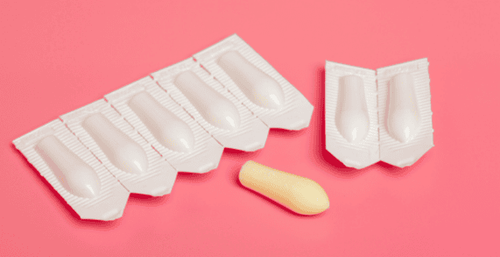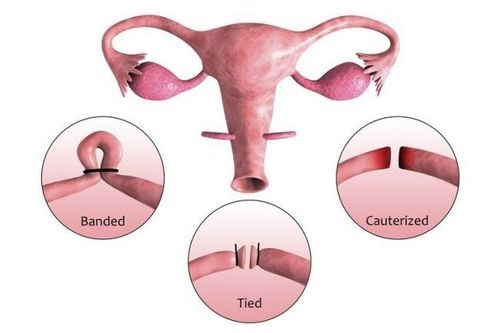This is an automatically translated article.
Although there have been reports of emergency and daily oral contraceptive interactions with other drugs, this is still the method of choice for many people. Women with type 1 or type 2 diabetes can still take oral contraceptives safely, but should consult their doctor before using them to avoid unwanted side effects.
1. Importance of contraception for women with diabetes
In many cases, women with diabetes who do not meet the criteria for pregnancy need to use birth control methods prescribed by their doctor. If blood sugar control is not good, it will lead to many different pregnancy complications. In particular, when persistent hyperglycemia persists in the early stages of pregnancy - the time when the fetus's organs are formed, the risk of birth defects is also increased.
According to a report, pregnant women with HbA1c ≥ 7.5% in the early stages, the rate of fetal morphological abnormalities is 12%. Moreover, the risk of appearing giant babies, neonatal hypoglycemia, jaundice and respiratory distress syndrome, ... is also not small.
In addition, women with diabetes often have an increased risk of retinopathy, making kidney disease worse... These are all conditions that need to be controlled before becoming pregnant. Therefore, diabetics are forced to carry out a planned pregnancy and control their blood sugar closely, coordinate with their doctor to get instructions on safe contraception and get pregnant at the right time.

Nhiều bệnh nhân tiểu đường không đủ điều kiện để mang thai
2. The level of safety of oral contraceptives for diabetics
Although there are about 23 different brands of birth control pills on the market today, in general, birth control pills are usually divided into two main categories:
The first type contains the hormones estrogen and progestin: Birth control pills This combination very rarely changes blood glucose levels, nor does it affect how the body controls blood glucose. The latter contains only progestin/progesterone: Progestin-only pills also do not cause changes in blood sugar control. In addition, other methods of contraception, such as injections and implants, are also considered quite safe for diabetics to use.
MORE: Side effects and interactions of diabetes medications
3. Risk of interaction of oral contraceptives with diabetes drugs
On the one hand, diabetes drugs are liver enzyme inducers, so they can reduce the effectiveness of oral contraceptives. If you're taking diabetes medication, you'll need to use another form of birth control or increase the dose depending on your doctor's instructions. On the other hand, many women feel a loss of blood sugar control when they start taking the pill, but this can often be remedied with a partial adjustment to the treatment regimen.
However, oral contraceptives can indirectly cause diabetes complications. In other words, some drug side effects can lead to an increased risk of diabetes complications. For example, high blood pressure can increase your risk of diabetic eye or kidney disease.
Some argue that the estrogen in birth control pills can raise blood sugar and decrease the body's insulin response. Meanwhile, the progestin in birth control pills can also lead to overproduction of insulin.
Some health professionals have recommended the use of oral contraceptives only in women who are under 35 years of age, are non-smokers, are otherwise healthy, and have no diabetes-related complications. In addition, diabetics and smokers should also seek alternative forms of contraception.
If you have any concerns about daily or emergency oral contraceptive interactions with your diabetes medication, you should seek medical assistance before continuing to take the medication. Family Planning organizations will provide you with consolidated information on different methods of contraception, tailored to each individual.

Thuốc tránh thai có thể làm giảm hiệu quả của thuốc tránh thai
4. Other methods of contraception for diabetics
4.1. Vaginal diaphragm
This is a form of inserting a hemispherical rubber membrane before sex to prevent sperm from entering the uterus. Before the combined oral contraceptive pill, this was an active method of contraception for women without the cooperation of a man. However, the disadvantage of this method is that the manipulation is difficult, if used incorrectly, it is easy to fail.
4.2. Condom
Condoms are popular, safe and effective birth control methods. In addition, this is also the only method of contraception that can prevent sexually transmitted diseases, easily combined with other methods of contraception. Users only need to manipulate correctly, the rate of contraception is almost absolute, but requires the cooperation of men.
4.3. Spermicide
During sex, insert vaginal medication containing Menfegol - a surfactant to kill sperm. This is a very simple measure but the failure rate is quite high.

Thuốc diệt tinh trùng có tác dụng ngừa thai
4.4. Watch the day according to the menstrual cycle
This method requires you to predict ovulation and only have sex in the period after ovulation. You need to calculate your period, measure your basal temperature or observe your cervical mucus to know when you ovulate. This method does not use drugs or equipment, so there is no need to worry about the risk of affecting health. However, the date tracking lacks accuracy and has a high failure rate.4.5. Set ring
Insertion of the device into the uterine cavity will be as effective in preventing pregnancy as combination pills. However, attention should be paid to the risk of uterine infection, especially in patients with diabetes.
In a nutshell, women with diabetes need to understand the possible risks of pregnancy and carry out a planned pregnancy. It is important to be fully equipped with knowledge from the time you are not pregnant, to find a method of contraception that is right for you.
Please dial HOTLINE for more information or register for an appointment HERE. Download MyVinmec app to make appointments faster and to manage your bookings easily.
Reference source: diabetes.co.uk













